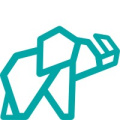Summary
Details
Features
Cut through the green tape
We don't push agendas. At Net Zero Compare, we cut through the hype and fear to deliver the straightforward facts you need for making informed decisions on green products and services. Whether motivated by compliance, customer demands, or a real passion for the environment, you’re welcome here. We provide reliable information—why you seek it is not our concern.
Deep dive
Overview

Key Features
Daily Actionable Insights: DeepSolar™ offers plant owners and operators daily insights, including root-cause analysis, to help increase energy yield and reduce expenditure.
Fault Detection: The software provides accurate fault detection, enabling timely identification and resolution of issues affecting solar plant performance.
Return on Investment (ROI) Maximization: By analyzing existing data, DeepSolar™ identifies insights and quantifies their impact on profitability, helping solar asset owners optimize their investments.
Big Data Analysis: The software leverages machine learning algorithms to process and analyze large amounts of data from solar installations.
Applications
DeepSolar™ is particularly useful for:
Large-scale PV plant owners and operators
Solar asset managers
Companies looking to optimize their solar energy portfolios
How DeepSolar™ Works
Data Collection:
DeepSolar™ collects data from existing monitoring systems in a solar power plant, such as inverters, string monitors, weather stations, and other performance-related sensors. This data includes parameters like energy production, voltage, current, temperature, and weather conditions.
AI-Driven Data Analysis:
The platform uses sophisticated AI algorithms and machine learning models to analyze the collected data. It processes vast amounts of information to detect hidden patterns, anomalies, and inefficiencies that would be difficult to identify manually. The analysis includes identifying trends in performance, and degradation rates, and detecting faults in the system.
Fault Detection and Diagnostics:
DeepSolar™ identifies specific issues affecting the performance of the solar plant, such as shading, equipment degradation, soiling, faulty strings, and mismatched components. It diagnoses the root causes of these inefficiencies and ranks them based on their impact on energy production.
Performance Optimization Suggestions:
After diagnosing the problems, DeepSolar™ provides clear, actionable recommendations for optimizing performance. These suggestions may include cleaning solar panels, repairing or replacing faulty equipment, adjusting inverters, or reconfiguring strings. The platform prioritizes actions based on their potential impact on energy yield and operational efficiency.
Automated Reporting and Alerts:
The platform generates automated reports and real-time alerts that keep solar operators informed of the plant’s performance status. It highlights critical issues that need immediate attention and tracks the performance over time, allowing operators to monitor improvements and make data-driven decisions.
Predictive Maintenance:
DeepSolar™ incorporates predictive maintenance capabilities by forecasting potential failures before they occur. By analyzing historical data and performance trends, it predicts which components are likely to fail and when, enabling operators to perform preventive maintenance and avoid unexpected downtime.
Continuous Learning and Improvement:
The AI models in DeepSolar™ continuously learn and adapt from new data, improving the accuracy and relevance of its diagnostics and recommendations. This continuous learning approach ensures that the platform remains effective in optimizing the solar plant as conditions change over time.
No Additional Hardware Required:
DeepSolar™ integrates seamlessly with existing monitoring infrastructure, meaning no additional sensors or hardware installations are necessary. This makes the system easy to deploy and scalable for any size of solar plant, from small installations to large utility-scale farms.
User-Friendly Dashboard:
The platform features a user-friendly dashboard that visually presents the data analysis and insights. Operators can easily navigate the information, understand the health of their solar assets, and track the impact of implemented optimization measures.
Case study
Raycatch has been featured in a Google Cloud case study highlighting how the company uses Google Cloud's technology to enhance the capabilities of its DeepSolar™ platform, providing advanced solar asset management solutions through cloud computing and AI-driven analytics.
Raycatch needed a robust, scalable, and efficient infrastructure to support the data-heavy and computation-intensive processes required by its DeepSolar™ platform. The goal was to process large volumes of data from solar power plants worldwide quickly and accurately, providing actionable insights in real-time.
Raycatch turned to Google Cloud to power its AI-driven platform. By utilizing Google Cloud's suite of tools, Raycatch was able to leverage cloud-based machine learning, data storage, and real-time analytics capabilities, significantly enhancing its platform’s performance and scalability.
Use of Google Cloud Tools
BigQuery: Raycatch uses Google BigQuery, a fully managed data warehouse, to handle vast amounts of data from solar installations. BigQuery enables fast SQL queries and analytics on large datasets, crucial for providing timely insights to solar operators.
Cloud Machine Learning Engine: This tool is utilized for building, training, and deploying the machine learning models that underpin the diagnostic capabilities of DeepSolar™. The platform’s AI algorithms are trained on historical and real-time data to improve accuracy and predictions continuously.
Google Cloud Storage: Raycatch relies on Cloud Storage to manage and store data securely, ensuring high availability and scalability as the company expands its operations globally.
Dataflow: Raycatch uses Google Cloud Dataflow for real-time data processing, allowing the platform to analyze streaming data as it comes in from various solar sites, providing near-instantaneous diagnostics and insights.
Outcome
The partnership with Google Cloud has allowed Raycatch to provide a cutting-edge, AI-driven solar management solution that is both efficient and scalable. This has positioned Raycatch as a leader in the solar tech industry, capable of delivering high-quality insights to operators, improving solar asset performance, and contributing to the broader goal of maximizing renewable energy output.
Pricing
Raycatch offers a subscription-based pricing model, which could be structured as a monthly or annual fee depending on the level of service and contract terms. If you're interested in implementing DeepSolar™ for your solar assets, the best approach would be to reach out to Raycatch directly for a tailored quote and to discuss how their software can meet your specific requirements.






